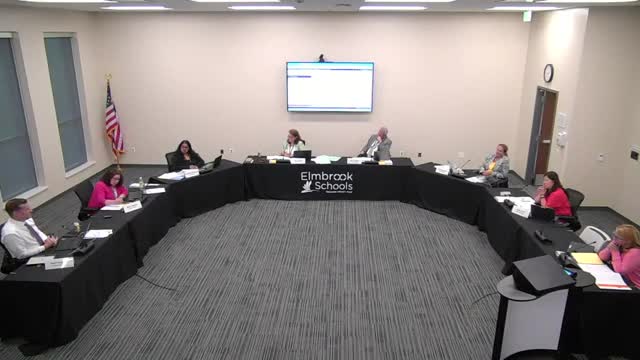Educator defends teaching controversial literature amid backlash
July 09, 2024 | Elmbrook School District, School Districts, Wisconsin

This article was created by AI summarizing key points discussed. AI makes mistakes, so for full details and context, please refer to the video of the full meeting. Please report any errors so we can fix them. Report an error »

During a recent government meeting, a heated discussion emerged regarding the teaching of controversial literature in schools, particularly in Advanced Placement (AP) literature classes. One participant vehemently defended the curriculum against accusations of promoting criminal acts through the inclusion of certain texts, asserting that no student is mandated to take AP literature and that claims of enforcing sexually explicit content are unfounded.
The speaker emphasized the importance of discussing controversial issues in a sensitive and open manner within the classroom, highlighting the value of such discussions in fostering critical thinking among students. They recounted positive feedback from former students who appreciated the thoughtful approach their AP literature teacher took in addressing complex topics.
The conversation also touched on the necessity of providing students with a safe space to engage with challenging subjects, asserting that this educational obligation is paramount and unrelated to the nature of the literature being taught. The speaker expressed a willingness to debate the classification of certain texts as sexually explicit, arguing instead that their inclusion serves to provoke thought and discussion about violence and cultural issues.
In closing, the speaker affirmed their commitment to understanding the literature in question, stating they have read nearly all the books on the controversial list and encouraged others to do the same to better grasp the concerns surrounding these texts. The meeting underscored the ongoing debate over educational content and the role of literature in shaping student discourse.
The speaker emphasized the importance of discussing controversial issues in a sensitive and open manner within the classroom, highlighting the value of such discussions in fostering critical thinking among students. They recounted positive feedback from former students who appreciated the thoughtful approach their AP literature teacher took in addressing complex topics.
The conversation also touched on the necessity of providing students with a safe space to engage with challenging subjects, asserting that this educational obligation is paramount and unrelated to the nature of the literature being taught. The speaker expressed a willingness to debate the classification of certain texts as sexually explicit, arguing instead that their inclusion serves to provoke thought and discussion about violence and cultural issues.
In closing, the speaker affirmed their commitment to understanding the literature in question, stating they have read nearly all the books on the controversial list and encouraged others to do the same to better grasp the concerns surrounding these texts. The meeting underscored the ongoing debate over educational content and the role of literature in shaping student discourse.
View full meeting
This article is based on a recent meeting—watch the full video and explore the complete transcript for deeper insights into the discussion.
View full meeting
